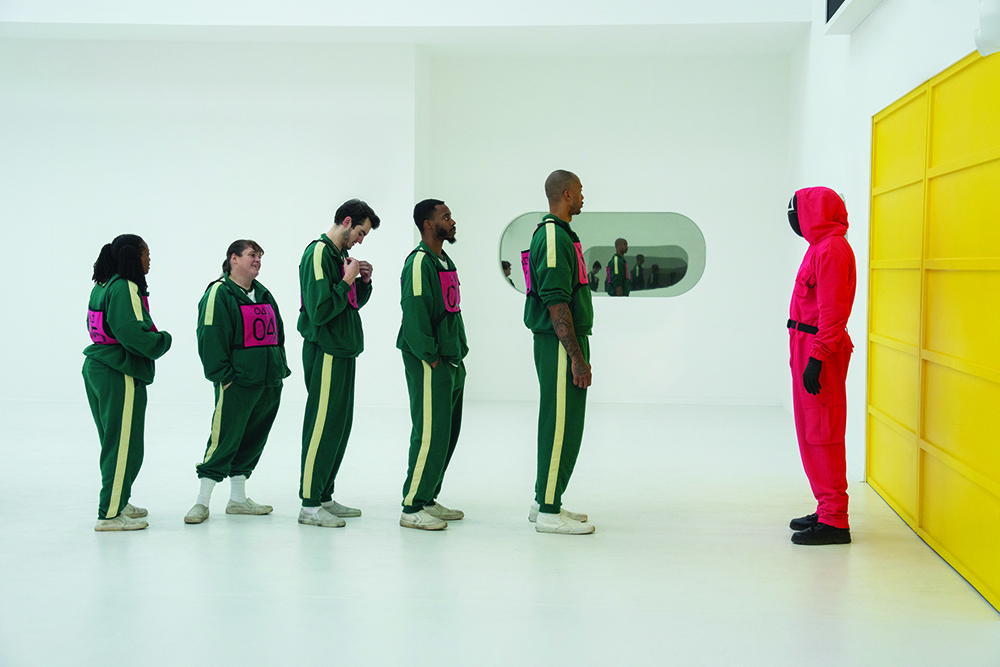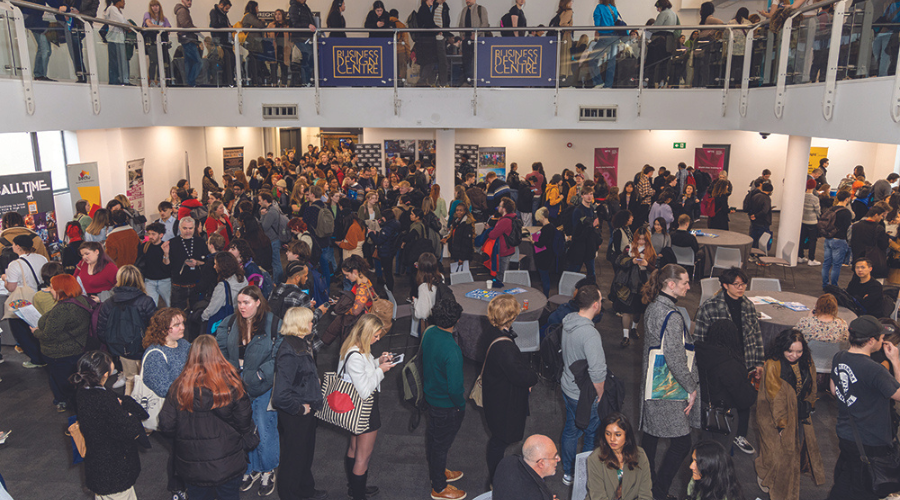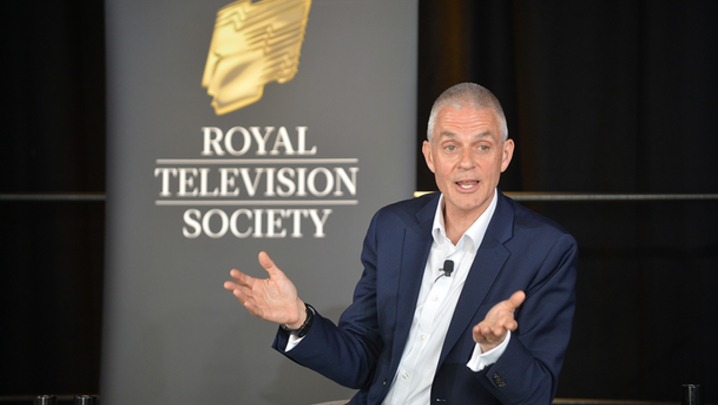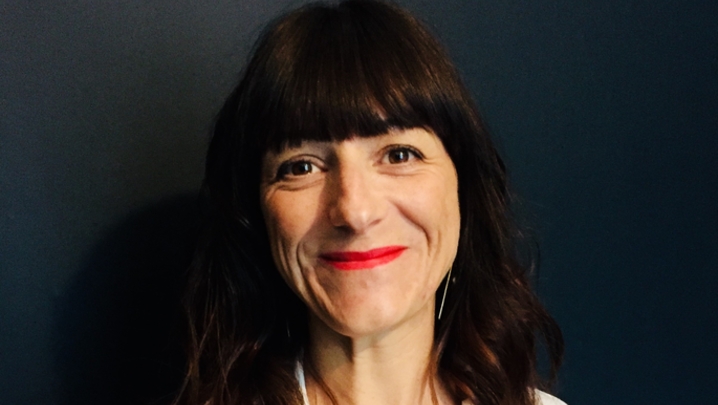Matthew Bell reports from the packed-out RTS Futures 2024 Careers Fair
More than 1,600 tickets were sold for the RTS Futures Careers Fair in Islington, London, in early February – a record number for an in-person fair. The fair welcomed close to 50 industry exhibitors, while at the CV clinic more than 350 attendees had their CVs tweaked by media professionals and 100 TV experts offered advice in the “ask me anything” area.
Enter the Squid
A dissection of Netflix hit Squid Game: The Challenge, a Studio Lambert/The Garden co-production, was the day’s standout session. The show, which has enjoyed success worldwide, was shot in the UK.
In the series, inspired by the drama of the same name, which aired from late November last year, 456 players played for $4.56m, the biggest cast and prize for any TV reality show. “With the money being so high, it does become life-changing,” said Daisy Lilley, from Netflix’s unscripted team in London, who was part of the commissioning group behind Squid Game: The Challenge.
The South Korean drama Squid Game – in which the contestants played a deadly game to the last one standing – was a “global phenomenon” when it came out in September 2021, Lilley said. “It’s rare to find a new series that has such an iconic look and such originality,” she told Kat Hebden, Head of Development at Lifted Entertainment, who hosed the Careers Fair session.
The key, said Studio Lambert’s Stephen Yemoh, one of the executive producers on the show, was to “make a drama into a compelling reality show… we didn’t want it to feel like a damp squib. It [involved] taking the drama world and making it into practical games. It had to feel like the players were in [that] world and were absolutely doing what the actors were doing when they were in the drama.”

Making the show, added John Hay, CEO at The Garden, “took an enormous army of people, on a scale that I’ve not worked on before”.
Production designer Mathieu Weekes, who runs Bizibot Design, said that recreating the iconic Squid Game world was “liberating – it was one of those rare projects where you actually know what it’s got to look like… trying to stay true to and honour that world as closely as you can”.
Lilley said: “It wasn’t just making it look brilliant, it had to be fully immersive for these people to live in and it had to actually serve as home – these people were in there 24 hours a day; it wasn’t a set that they could [leave and] go back to a hotel at night.”
Weekes added: “The immersive thing was the key, [the contestants] had to believe they were in that environment.… That’s what really drove us with the design, [so viewers] could not see the seams, so they got lost in it.”
The casting was done by three teams, who covered the East coast of the US, the West coast, and the UK and the rest of the world. “We ended up with an amazing array of people from all walks of life – people who would not have appeared on other shows,” said Lilley.
It was a hard watch for the production crew when a personal favourite was eliminated. “Again and again, we’d get attached to people but, with a prize that big and the mechanics of Squid Game… you’ve got to be unbelievably scrupulously fair,” said Hay.
Impossible to illustrate
In “Filming the impossible: The art of science and natural history”, Peter Leonard, who runs the Science and Natural History MA programme at the National Film and Television School, discussed the difficulties of filming in these two genres.
Making science and natural history television, he said, is “an intellectual and practical challenge…. In natural history, find an animal and film it? Right? Kind of, there’s a bit more to it. Sometimes, things are very difficult to film.”
Film-makers use sophisticated tech, such as the Phantom high-speed camera, which “shoots things at very high frame rates… so you can see things you otherwise wouldn’t see”, explained Leonard.
“With science, you’re dealing a lot of the time with concepts, with ideas, things you can’t see.” Taking astronomy as an example, the former Head of Development at BBC Science explained that the solar system is “too big and too far away” to illustrate easily. Dismissing “dull diagrams”, he reminded the audience that “television is a visual medium and you’ve got to think of something to explain this stuff”. As an example, he showed a clip from an early Brian Cox series, Wonders of the Solar System.
Leonard recalled a Horizon programme on the science of laughter with comedian Jimmy Carr, which “we did as a chat show”.
Largely, Leonard explained, science and natural history are two distinct genres, but there is some overlap in the areas of conservation, ecology and climate science. “Those things are crucially important… and very difficult to get right. It’s a big turn-off in terms of viewers – people don’t really want to know about the terrible things happening to our planet.”
He added: “There hasn’t been a better time to get involved in these areas of film-making…. It is challenging, you are asked to do things which you might think are impossible until you think about them… but I think it’s a great way to spend some of your limited time on this planet.”
The future of tech roles
There were two other sessions during the day: “Getting your foot in the door”, which offered an outline of the programmes available for new entrants to the industry, including those from the BBC, Channel 4, Mama Youth and ScreenSkills; and “The future of tech roles”, which was hosted by Danielle Neville Reilly, IMG Media’s Head of Production Services.
Neville Reilly asked whether people needed to specialise to work in sport production.
Panellist and sport fan Charlotte Winter, who has a history and politics degree, has been Head of Live Technology at sport specialists IMG Media for the past six months. Previously, when she was working at BT Sport as a production secretary, she had a “lucky break”. She was sent to an Arsenal FA Cup match and “fell in love with outside broadcasts – that transformed my next 10 years. I’m not a specialist in any way… I know a little bit about every area… but I could never rig a truck… I do need people who can do that.”
Samantha Dunlop, Head of Client Services, Premier League Productions, IMG Studios, started working the autocue and then moved into studio sound and mixing, management and digital transmission. She ran a light entertainment studio and now works in football – “that’s because I know a little bit about everything, I don’t have a passion for football… but I like to understand how everything connects… I love the variety”, she said.
Variety all the way, agreed fellow panellist Dan Walter, Camera Store Supervisor at IMG Media, “but you do have to respect the craft”.
Referring to the huge pace of change in TV technology, he added: “Stay ahead of the game, because it’s changing so quickly.”
The RTS Futures Careers Fair was held at the Business Design Centre in London on 7 February. It was sponsored by the National Film and Television School and IMG Studios.







